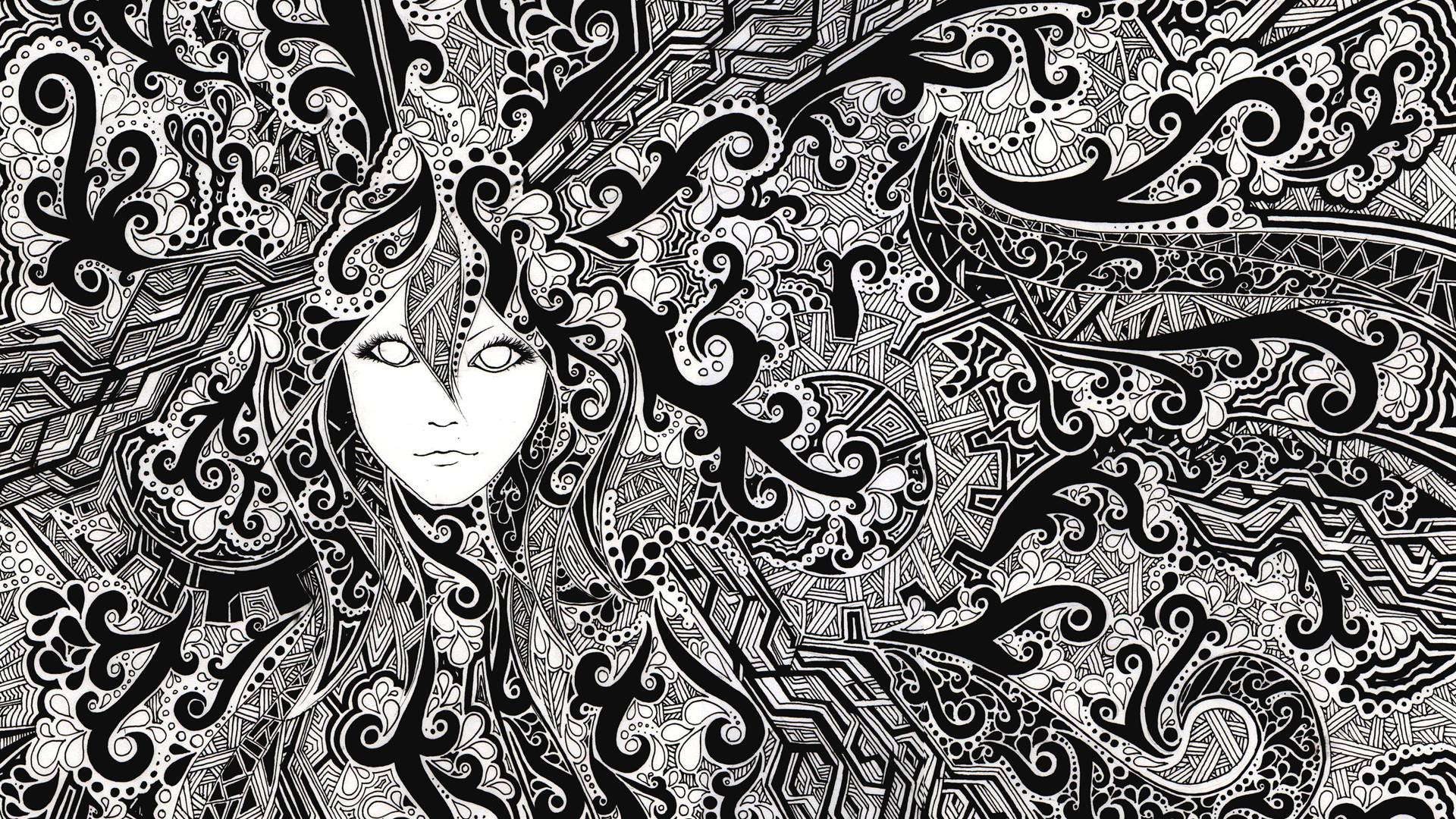What does the everyday mind (the thinking mind, the rational mind) do all day long? What is its job? Well, what it does and what its ‘job’ is are two different things. We might say that the thinking mind’s job is to solve problems, to ‘crack nuts’ that need cracking. It is a specialized tool and as such it has a specialized function. This is what its proper job is, so to speak. What this mind actually does however is to create a positive reality, which is no help to anybody!
A ‘positive reality’ – we might say – is a completely seamless virtual construct that takes the place of reality (which isn’t a construct) without actually being reality. ‘Positive’ means asserted or defined – it’s what we say reality is, it’s what we define reality as being. The reason we don’t – in everyday life – appreciate the significance of what it means to use this term (and hence appreciate how important it is to distinguish a positive from a negative reality) is because we pretty much always take it for granted that the world is what we define it as being, what we mentally describe it as being. The idea that it might not be what we say it is – not in any way at all – simply never occurs to us. We could very easily go through the rest of our lives without this occurring to us. The chances are overwhelmingly against this occurring to us!
The notion that reality should be ‘what we say it should be’ is of course completely outrageous! How could we believe that ‘what we say reality is’ is the deciding factor? One answer to this question is to note that it’s not so much what we say it is so much as what we think it is. We very much take it for granted that the world is what we think it is. Our thinking is in this respect quite invisible to us – it functions without us seeing it functioning. It functions unobtrusively in the background. We don’t in the normal run of things have any other way of apprehending the world other than through the everyday mind. That’s how we know about it – via our thoughts. We know the world via our ideas, via our concepts…
The thoughts come one after another without any break, without any space between them. They come thick and fast practically from the moment we wake up to the moment we go to sleep in our beds. It’s as if they are coming off an assembly line, as if they are being churned out day-in day-out by a fully-automated factory. It’s because the thoughts come so constantly and so seamlessly that they are able to fabricate a positive reality. There couldn’t be a positive reality otherwise – it just wouldn’t work. ‘Gaps in the broadcast’ and ‘a positive reality’ just don’t go together!
If there were any gaps in the cognitive overlay then we’d know about it. Our regular familiar perception of reality would be like a tattered flag caught in a hurricane – it would lose its credibility. If there were noticeable breaks between one thought and another, one concept and another, then we would be able to see our thoughts or concepts for what they are. We would be able to see our thoughts as thoughts and our concepts as concepts and this would be a whole different ball-game! Reality itself puts our cut-and-dried representations of it to shame. The difference between a positive (or mind-created) reality and reality as it is in itself is immense – they are not shades of each other but out-and-out antitheses. One is positive and the other is negative; one is closed and the other is open. It’s not as if the mind-created reality is a modified version of the original – it bears no resemblance at all. There is no correlation, no connection; the map and the territory are two quite different things…
If there was a genuine correlation or connection between the construct and the original then the former would relate us to the latter; the construct or model would lead us to ‘reality as it is in itself’. The idea or the concept would help us to get somewhere real in this case, but that is not how it works. There’s no correlation – as Anthony de Mello says
Thought is a screen, not a mirror; that is why you live in a thought envelope, untouched by reality.
This isn’t a logical argument we’re making here. It isn’t possible to rationally argue that the world which is created by the rational mind is radically different to reality as it is in itself. Such an argument would of course be jinxed right from the very start. Such an attempt would be a classic exercise in futility. The thinking mind cannot lead us away from itself; thought cannot free us from thought. It is as if we are trying to jump into the air and our shoes are nailed to the ground. It is as if we are trying as hard as we can to jump into the air but our boots are concreted into the floor. Or it’s as if we’re wearing steel boots standing on a steel floor and our boots have been welded onto the floor by a professional welder who was taking no chances. There might be some kind of a futile jerk or twitch as we keep on trying to jump but the one thing that is absolutely certain is that no matter how hard we try we’re not getting anywhere!
This point can’t be stressed enough. No matter what language we use, we can’t make the point strongly enough. Blood cannot wash away blood, as the Zen saying has it. This impossibility turns out to be more than just a minor stumbling block on the way because just about the only thing we know how to do is think! This is our answer to everything. It’s as if we have only one muscle and we use it for everything, all the time. We rely completely on this muscle – which is the muscle of rational thought – and as far as freeing ourselves from the tortuous maze of our own thinking goes, it is completely useless to us! Not only is it completely useless – the more we use this muscle the more of a hole we dig ourselves into. The more we think the worse it gets. Far from helping us exerting the muscle of rational thought is absolutely guaranteed to keep us stuck to the surface of the platform of thought. Exerting this muscle is absolutely guaranteed to keep us ‘stuck in the positive reality’.
We do have another muscle, however – it just happens to be a muscle that we hardly ever use. We use it so rarely that we don’t even know that it is there. We’re never encouraged to us it – our culture, our way of life, is all about promoting the thinking mind, not developing the muscle that allows us to refrain from using it! We are encouraged and rewarded so much for thinking that we end up being little more than ‘an over-developed thinking mind and nothing else’. The rational faculty – which is only one small part of the totality of the psyche – has become the ‘be all and end all’. Nothing else counts in our society – we pay lip service to the creative side of our nature to be sure but at the same time as saying how great creativity is we strangle it at birth. Society functions by making us into machines; everything in society is about regulation and regulation is the death of creativity! The effect of this unchecked promotion of the rational mind is of course the reinforcement and super-reinforcement of the positive reality – it’s not so much the rational mind that we’re feeding and feeding all the time therefore but the positive reality, the positive reality that we don’t even recognize as existing…
The muscle we’re over-developing (or developing in isolation) is the muscle of ‘getting things to be the way we want them to be’. Hypertrophy of this faculty results in the creation of a type of ‘tailor-made reality’ – a reality that faithfully reflects our desires and insecurities. Superficially-speaking this sounds like a very good thing. Who after all doesn’t want a world made exactly to suit them, a world that matches their desires? This is like asking, ‘who doesn’t want all their dreams to come true?’ The thing about this however is that this is all just a bit too obvious. It’s a classic trap. Who says that it’s a good thing when we get our heart’s desire? If we paid more attention to myths and fairy tales then we’d know a thing or two about the down-side of this sort of thing; in a nut-shell, what we get when we get what we most wanted is that we discover that this isn’t what we wanted after all! Fulfilling desires sounds great, but it just takes us around in circles – we enter a world that is inherently hollow and this is the most unsatisfying thing that there could ever be. We really should have looked into it more carefully before charging down this particular well-trodden road!
Ideas are fine as ideas, we might say, but we should never try to live in one! Naturally enough, we don’t see ourselves as living in a world that is made up entirely of ideas, but we are. Anything that comes out of the thinking mind is an idea – there is no way that thought can create anything that is not an extension of thought, a continuation of thought. So when we ask what the thinking mind does all day, this is it – it extends itself, it projects itself, it creates a non-terminating continuum of itself. The rational mind creates a world that is made up of thought – the type of a world that we have called a ‘positive reality’. It extends its assumptions indefinitely outwards whilst at the same time excluding (without acknowledging that it is) anything that is incompatible with these assumptions. The essential ‘positive action’ then, is this –
The aggressive outward projection of one’s assumptions combined with the absolute steadfast refusal to look at what one is projecting.
These are of course the two sides of the same action – aggressively asserting that something is true (that it definitely is the right way to do things) is how we refuse to question it. Saying YES is how we deny NO.
Accepting that thought does project a positive reality, and given that the only way to project a positive reality is by automatically excluding anything that is incompatible with the unexamined assumptions that the positive reality is based upon, we might wonder exactly what is so bad about living in it? What’s the big problem here? Why are ‘ideas fine as ideas but no good to live in’? The simplest way to answer this question is to say that just as thoughts have no space in them, neither do the world that is made up of them. Definite statements don’t have any space in them. There CAN’T be any space in a definite statement precisely because it is so definite – there’s nothing left to chance, nothing left undecided, nothing left ‘unsaid’ and it is the indefinite, the undecided, the unstated that constitutes space. Space isn’t what we say, it’s what we don’t say; it’s not what we know, it’s what we don’t know…
Space is what we almost always neglect, in other words. We don’t pay any heed to space because it doesn’t seem important – it is almost entirely overlooked in our everyday lives. What hogs the attention is the positive reality, the definite assertion, despite the fact that the positive reality / definite assertion is invariably hollow. Anything that isn’t part of our literal vocabulary fades into the background. Space is like Cinderella who always goes unnoticed despite the fact that she does all the work, despite the fact that she is the only honest / virtual one there. Our eyes are always on the ugly sisters, who despite all their finery are narcissistic, selfish, badly behaved, lazy and generally good for nothing. Space is the most ‘taken for granted’ thing there is, despite the fact that everything relies on it. We take it so much for granted that we actually look down on it – just as a pampered aristocracy always tends to look down on the ten-a-penny commoners who actually do all the work! Space is ‘nothing’ – it has no kudos, no glory. It’s the same thing with doing – doing is great, doing is glamorous, whilst non-doing is weak and ignominious, even though, as we read in the Tao Te Ching –
The Way is ever without action,
Yet nothing is left undone.
In a similar vein, Lao Tzu tells us that ‘Silence is the great revelation’. For us however it is in the word we look for revelation, in the idea. We are always hanging upon words (or ideas), hoping that the next one will turn out to be pure gold. This is why we never stop talking / thinking. It never dawns on us that the Great Mystery, the true gold, lies in the space between the words, the space between the definite statements. If we were to have this revelation we would see that we had it all backwards – we would see that we were looking at life in a ‘reversed fashion’ and that all the glory lies in the space that we have been so studiously ignoring, rather than in the vain forms that we had been idolizing.
The reason we ought not to try to live in a world made up of ideas therefore is because this is not a world at all. Nothing can happen without space and so there can be no world without space. That which we value the least is actually the fulcrum upon which everything turns. As T.S. Eliot says,
At the still point of the turning world. Neither flesh nor fleshless;
Neither from nor towards; at the still point, there the dance is,
But neither arrest nor movement. And do not call it fixity,
Where past and future are gathered. Neither movement from nor towards,
Neither ascent nor decline. Except for the point, the still point,
There would be no dance, and there is only the dance.
We define the world out of a type of greed – we’re ‘greedy for the good stuff’ and in our mad scramble to secure what we think is true or real we end up throwing out what actually is real. We’re so busy trying to avail of the promises that are being made by the flashily-dressed confidence trickster that we turn our back on our true friend. Just so long as we’re ‘acting on behalf of the positive or defined self’ we’re always looking the wrong way – we’re always ignoring the genuine source of our well-being. We’re always ignoring the source (which is ‘the still point of the turning world’, as T.S. Eliot puts it) because it can’t be modelled, because it can’t be stated, because it can’t be represented in black and white terms by the thinking mind. As we’ve been saying, the one thing the positive reality can’t have in it is genuine honest-to-goodness space. Positive reality (as we have said) is the reality we assert, and we can’t assert space. We can’t assert space because space is ‘what we don’t assert’. Space is the gap between our assertions, the gap between our thoughts, the gap between our definite statements. Space is what we’re never interested in. Space is what we always neglect. Space is Cinderella, and we only have eyes for the ugly sisters…






